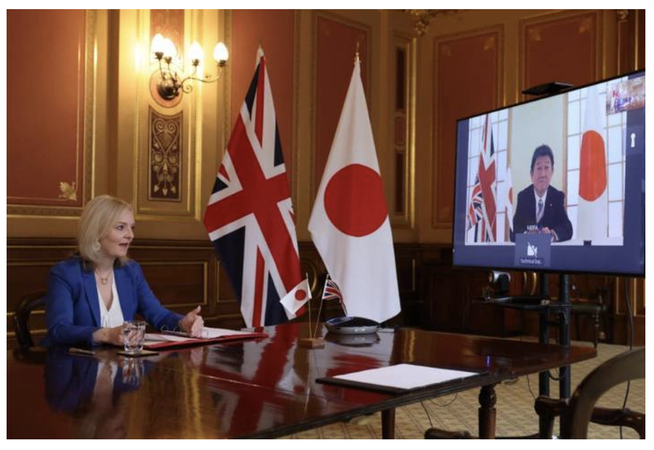UK’s first post-Brexit trade agreement with Japan will increase opportunities
3 minutes read
14 September 2020

On 11th September 2020 the UK and Japan agreed in principle on the “Japan-UK Comprehensive Economic Partnership Agreement (EPA)”, which is the UK’s first post-Brexit trade deal.
Negotiations on the deal had started back in June 2020, ahead of the deadline for the UK to leave the European Union when the Brexit transition period ends on 31st December 2020. The UK currently benefits from the Japan-EU EPA, but this will end when the UK leaves the EU. Japan and the UK had aimed to make the announcement in August, but the agreement was delayed due to differences over tariffs on UK agricultural exports, including cheese.
In a press release, the UK Department for International trade (DIT) said that the deal will increase UK trade with Japan by an estimated £15.2 billion and it is also an important step towards joining the Comprehensive and Progressive Agreement for Trans-Pacific Partnership (CPTPP). The UK DIT has previously stated that the UK intends to pursue accession to the CPTPP which will allow it to trade on improved terms with the Asia-Pacific region, including Australia, Japan, New Zealand and Singapore, as well as in Latin America and with Canada. Depending on the US election result, if the US decided to re-join the CPTPP, it would change global trade dramatically.
Although the increase in trade between both countries of £15.2 billion and the annual increase to UK GDP of £1.5 billion (or 0.07%), as quoted by the DIT may appear small, we believe this UK-Japan partnership will provide further opportunities beyond the two countries, for example in trade between UK-Japan-Asia, and between Japan-UK-Europe/Africa.
The Japan-UK EPA is based on the existing Japan-EU EPA but will go further than the Japan-EU EPA by reducing the amount that the two governments will intervene in businesses. For example, in the technology/IT sector, there will be no requirement to disclose information related to algorithms or encryption which will keep company’s technology and information secure. Other provisions in the agreement include:
- A ban on data localisation, which will prevent British businesses from having the extra cost of setting up servers in Japan.
- Improved market access for UK financial services – including greater transparency and streamlined application processes for UK firms seeking licences to operate in Japan.
- Increasing geographical indications (GIs) from just seven under the terms of the EU-Japan deal to potentially over 70.
- Increased provisions that tackle online infringement of IP rights, such as film and music piracy.
- Simplified requirements and faster processing for worker’s visas with more flexible terms for workers and their families.
- Guaranteed access to Japan’s market for UK malt exports
These additional conditions will facilitate trade further and ease companies setting up their businesses in-between the two countries.
Our CEO Masako Eguchi-Bacon commented on Thames Valley Chamber of Commerce
DIT Press Release “UK and Japan agree historic free trade agreement”
Contains public sector information licensed under the Open Government Licence v3.0.
